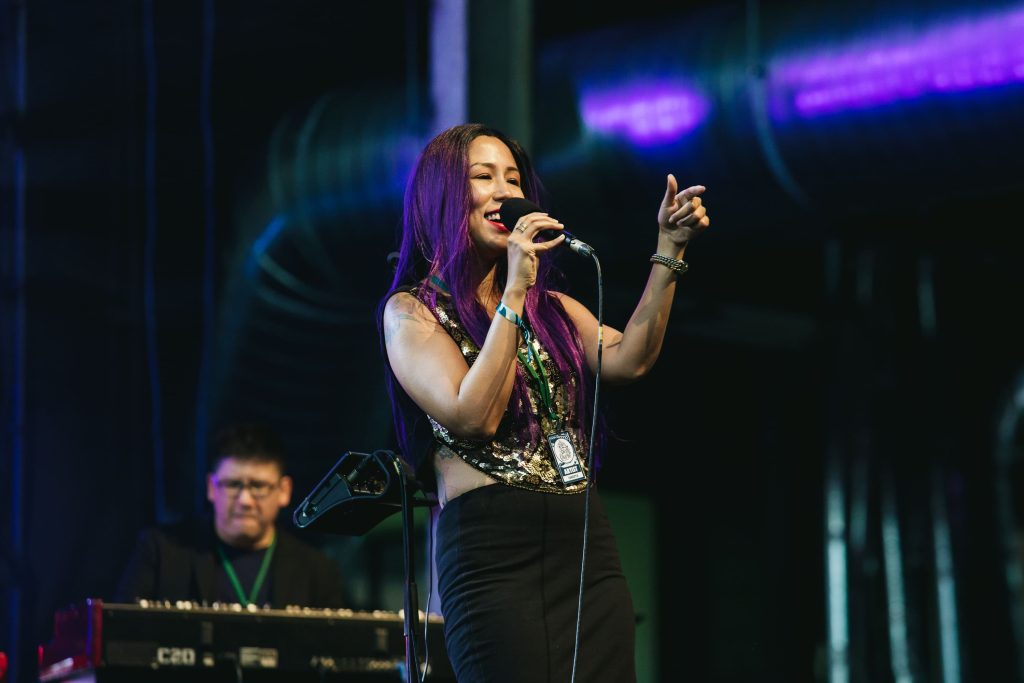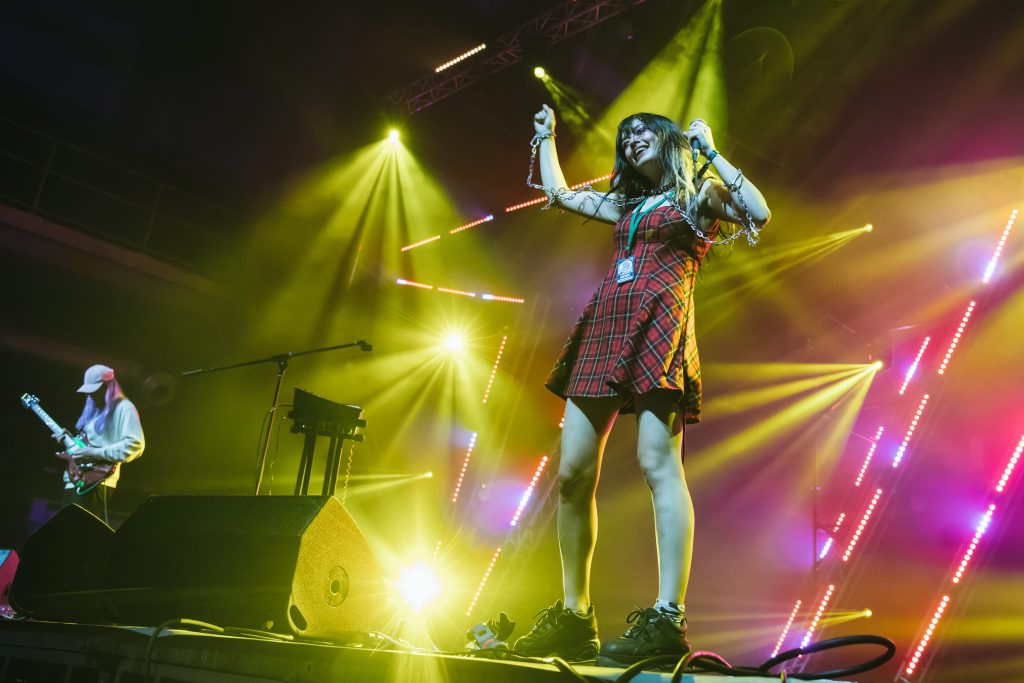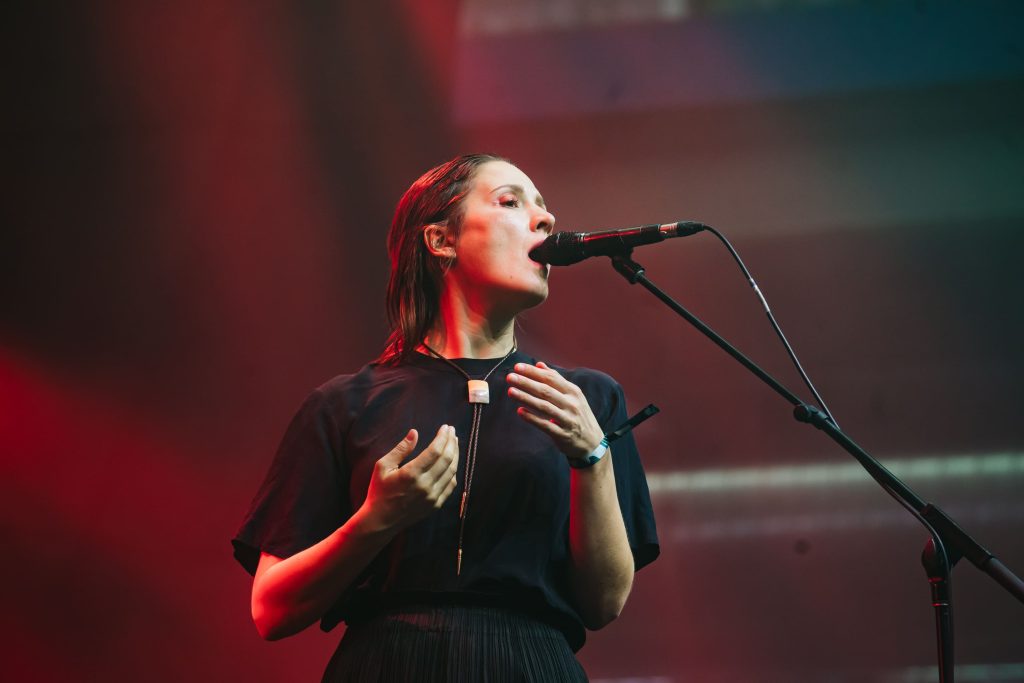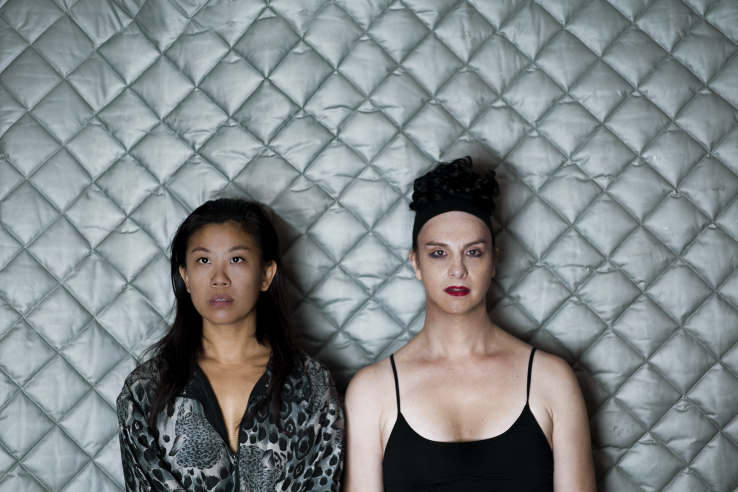How SOAK didn’t let success get into her head
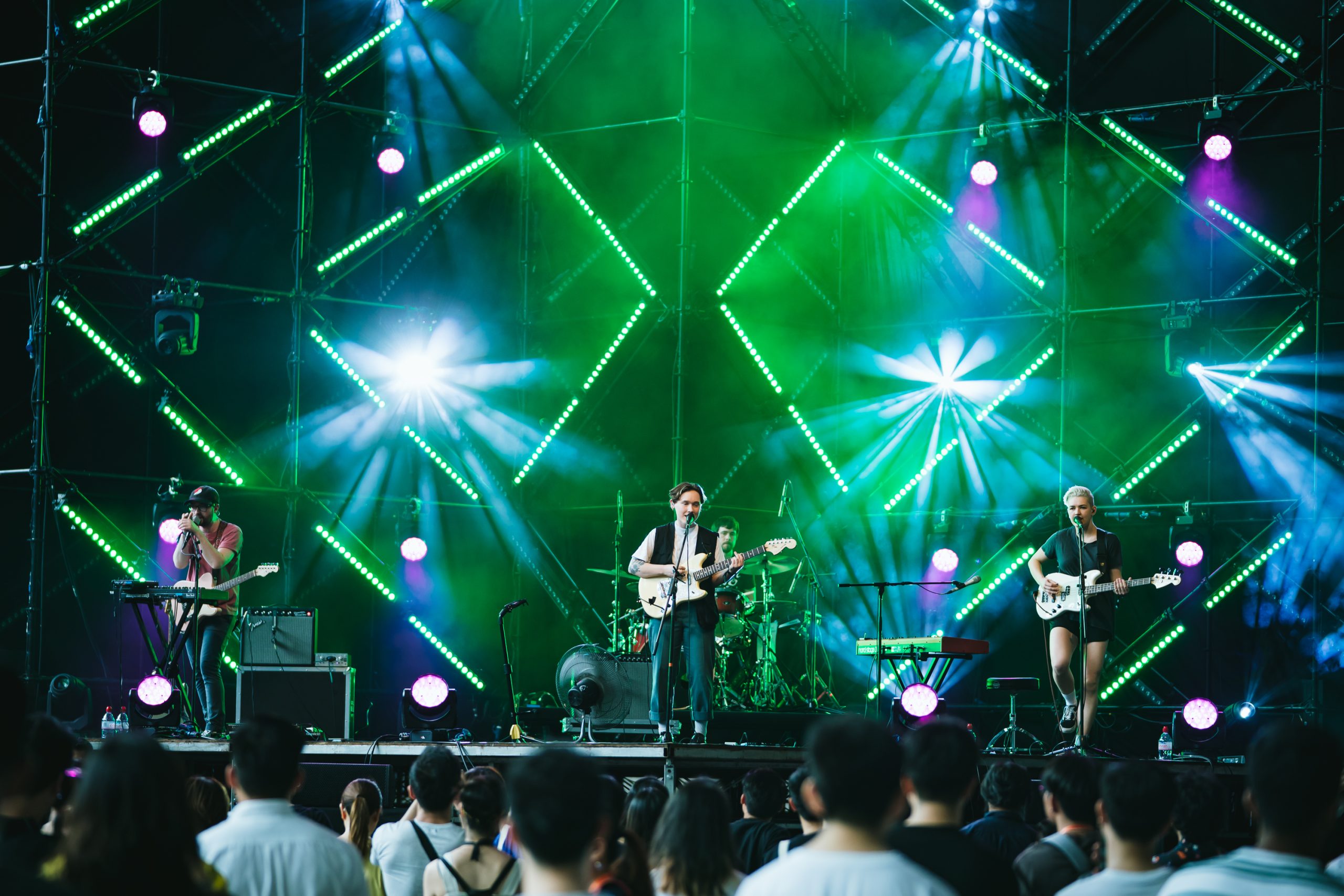
Northern Irish singer-songwriter Irish Bridie Monds-Watson on the importance of ambition and staying grounded
Few teenagers in the world could say they have won a country’s highest musical honour, so it is certainly a feather in the cap for SOAK, otherwise known as Bridie Monds-Watson, who was awarded the Irish Choice Music Prize – two months before she turned 20 in 2016.
Most impressively, it was for her ethereal, folky 2015 debut album, Before We Forgot How to Dream. It also nabbed the Northern Ireland Music Prize, and was nominated for the Mercury Prize, alongside releases by more seasoned acts such as Florence and the Machine and Wolf Alice.
Such accolades would have made anyone, let alone an adolescent, big-headed, but not Monds-Watson, who was raised in a middle-class suburb of Derry in North Ireland. Her father works in mental health while her mother teaches social studies at the University of Ulster.
She slipped into depression instead, crippled by the weight of the expectations. “And it wasn’t even pressure from other people. It was just me being a really harsh critic, trying to make something and hating it before it even begins,” she once recalled in an interview.
Eventually, the now-23-year-old, whose stage name “SOAK” is a portmanteau of the words “soul” and “folk”, wrote the songs for Grim Town, her sonically more expansive second album which was released in April this year. The title is an expression used when “something’s a bit shit, [and] me and my friends say ‘it’s grim town.’” The album charts her personal struggles, chronicling her parents’ divorce and her own breakups.
Speaking from Brighton, where she is currently based, Monds-Watson reveals how she overcame her writer’s block, and why she feels responsible to represent her generation in her music.
In an interview with the Evening Standard in March this year, you said something candid about winning so many awards for your first album: “I could write better than this.” What were your reservations?
When I wrote my first album, I was quite young. I wrote the songs in a short span of time, and I didn’t really change much of anything after that. I was surprised the album has done well, considering I was writing the songs for myself, for self-therapy, so I was surprised that they meant so much to other people.
Were you thinking about doing anything else if the music plan didn’t pan out?
Initially, it wasn’t my goal in life to be a musician. When I was 15 or 16, music started to go my way, and I got really lucky. As soon as I started in the music industry, I couldn’t imagine myself doing anything else. I was motivated from that point on.
You’ve attributed your success to your parents who I understand work in mental health and social work.
They are really supportive. My mum was involved from the start, making sure I didn’t sign any record deal until I was like 18. She drove me to gigs and stuff like that. My dad taught me guitar, and so I was really lucky that both of them are helpful.
How did you overcome your depression and start writing the second album? Was there a moment, or realisation that this is something you could actually sink your teeth into?
It’s hard to write for the second album. There was more pressure now that there are more people listening to my music. So, definitely, there was a lot of self-doubt and rethinking. The break came when I started to write the same way I did when I was 14 or 13 – which was to sit in my bedroom, and talk about what was going in my life. And so, I started to write like that, and write for myself than for anyone else. Once that happened, everything happened quite quickly.
Do you have someone who you use as a soundboard, or do you prefer to be alone?
In the initial stages, I’d prefer to be alone, and get all my ideas and thoughts, so that I enjoy being isolated. And then when I have a bag of ideas and melodies, I try them with someone else.
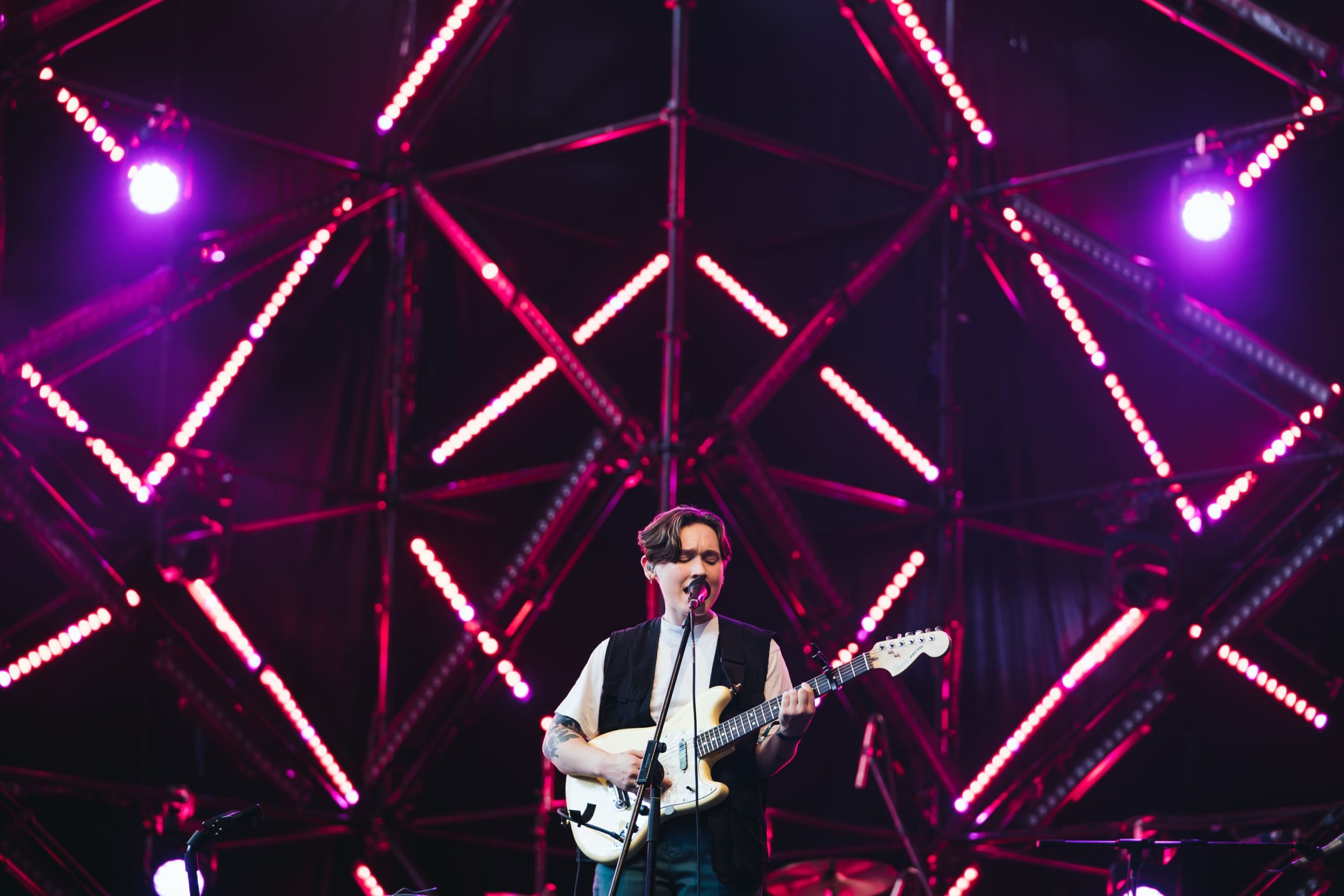
Looking back at the first album, what would you say to the Bridie who wrote the songs as a teenager at age 13?
I’d say, “Just keep doing whatever you’re doing.” I was very lucky when I was 13. I was very sure of what I want to do at that time… and now I’m not very sure. (Chuckles) At that time, I was very confident. I was just motivated and very assured of myself, and determined. I’d just tell my 13-year-old self to keep being that way, work on ideas, and stay motivated.
Were you surprised by some of the songs you wrote when you were 13?
I wasn’t surprised by the songs, but whenever I listen to them, I just feel they are so me at that age, because I was so personal about my life. It was kind of walking into an elevator, and searching for a previous life. I’m surprised, however, by the way I wrote a chord progression which I didn’t think I was capable of.
Are you aware of the young audience you have, and do you feel responsible to represent them accurately, as well as dealing with what’s going on in the world right now?
Absolutely. I have a platform and a responsibility to use my profile for good. I know a lot of young people are listening to my music, so I try to support them. I try to get involved in trying to highlight girls in sports and music. Also, I know I have a big LGBT following, and I try to be outspoken about that. And the situation with the world right now, in terms of climate change and so forth, so many weird, bad things are happening right now, you got to help in what possible way you can.
Are you at the stage of your career where you are looking forward to meeting people you admire, or want to work with?
Yah, absolutely, I think I’m lucky that throughout my career, I have a lot of support from my heroes. I’m lucky enough to support them on tour, such as Tegan and Sarah who were a huge inspiration when I was really young, and I got to play a lot of big shows with them. I was really lucky recently to meet Bono from U2, so I guess I have a lot of luck.
Monday, 21 October 2019


27 Pasir Panjang Road,
Singapore 117537

